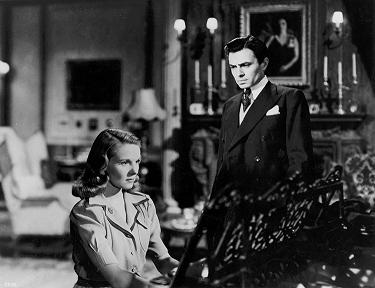
c/o MovieMail: The Quality Film Shop
 |
| Photo
© 1945 Universal Pictures/Sydney Box Productions c/o MovieMail: The Quality Film Shop |
| Academy Award Nominations and Winners (1946): | |
| ★ | Best Original Screenplay: Muriel Box & Sydney Box |
| Permalink | Home | 1945 | ABC | Blog |